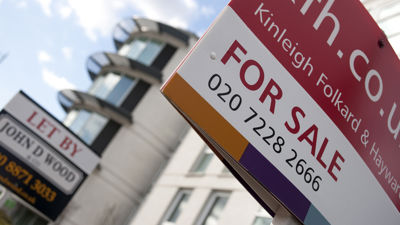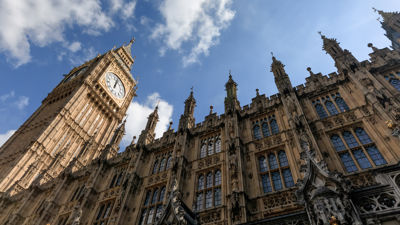The Property Institute offers its analysis of the newly introduced Leasehold and Freehold Reform Bill, after it was given its First Reading in Parliament.
Yesterday (Monday 27 November 2023), we brought members news of the introduction of the Leasehold and Freehold Reform Bill, as it was given its First Reading in Parliament, following its announcement in the King’s Speech earlier this month.
This Bill, introduced to “give homeowners a fairer deal, and greater rights and protections”, was introduced to the House of Commons, following the same route as the further advanced Renters (Reform) Bill.
Levelling Up Secretary, Michael Gove, stated that he is confident that this Bill will be passed before the next General Election, highlighting the importance his Department will give the topic over the coming months, as well as the overarching theme of housing being key to the Conservative election manifesto. The announcement of the Second Reading of the Bill today (Tuesday 28th November) is further testimony to the government’s desire to progress this legislation at pace.
The Bill in its entirety can be found here, with the accompanying Explanatory Notes here.
–
SPECIFICS OF THE BILL
Extending leases: Regarding leasehold enfranchisement, the Bill allows leaseholders of flats to extend their lease, and leaseholders of houses to extend their lease or buy their freehold, immediately upon taking ownership of a lease. Furthermore, when extending, this Bill introduces the right for a lease extension for a term of 990 years for both houses and flats, as well as allowing leaseholders who already have very long leases (over 150 years remaining), to buy out their ground rent without extending the term of their lease or buying the freehold.
Ground Rent: The Bill proposes that ground rent be reduced to peppercorn (zero financial value) upon payment of a premium. The Bill also seeks to introduce a right in which leaseholders who have had very long leases can buy out their ground rent without the extension of their lease or the need to purchase their freehold.
In a related development, the government is currently consulting on whether to introduce a cap on ground rents for all existing leases through primary legislation. This consultation, which launched on 9 November, is due to close on 21 December 2023. Further details available here
Regulation / Mandatory Qualifications: The Bill does not currently propose any form of regulation or mandatory qualifications for managing agents. This is an area that The Property Institute intends to push for through tabled amendments to add depth to the Bill.
Service Charges: The Bill seeks to drive up transparency of financial and non-financial information that leaseholders and tenants receive – including how service charge costs are presented, provision of key information (i.e., insurance costs) and the power to compel landlords to provide information necessary to tenants in whose buildings a service charge in payable. This Bill will also drive-up transparency of administration charges that leaseholders and tenants may face. The proposal of a standard chart of accounts is something that ARMA and IRPM both campaigned for two years ago and tabled as an amendment to the then Building Safety Bill. We are pleased to see this move towards greater transparency in this latest Bill and will be engaging with DLUHC officials to ensure that the provisions are workable.
Estate Management Regulation: The Bill seeks to give homeowners living on managed estates a number of new rights to make it easier to hold estate management companies to account. This includes the ability to challenge the reasonableness of the charges they pay. It also includes similar rights to leaseholders that are being proposed in this Bill around greater transparency of information over their costs and the ability to obtain other information. There will be provision for a system of civil penalties, which will apply to an estate management provider who fails to comply with requirements in respect of the provision of information, inspecting of accounts or insurance.
Insurance: The proposals in this Bill will prohibit commissions from the placer/manager of insurance from being recovered from leaseholders through their service charge. These commissions will be replaced by a transparent handling fee system where those placing or managing insurance can charge for their work. For example, if they are handling claims on behalf of leaseholders. The intent is the cost will have to reflect the work and time undertaken to arrange the insurance. This will aid leaseholder understanding of the basis of the fee and make it more easily challengeable if considered by the leaseholder as being unreasonable.
Legal Challenges: One of the likely points of contention through the Bill’s passage will be how it applies to flats, rather than houses. At present, the Bill will abolish leaseholds for new houses but not for new flats. It is possible that Labour and some Conservative MPs could seek amendments to change that proposed scope.
Right to Manage and Right to a collective enfranchisement: This Bill increases the ‘non-residential limit’ to 50% for collective enfranchisement and the right to manage.
–
REACTION
The Property Institute welcomes the introduction of the Bill to Parliament as an opportunity to improve leasehold tenure.
In particular, the extension of a code of management practice and tighter regulation of estate management is a welcome proposal; and we were pleased to see the provisions to bring transparency to service charges – something that The Property Institute (and ARMA and IRPM) has previously called for, proposing a standard chart of accounts as an amendment to the then Building Safety Bill in September 2021.
Whilst there were no real surprises in the Bill, following the earlier Kings’ Speech Briefing Notes, the lack of any provision to introduce competency standards or regulation to our sector is a missed opportunity. Whilst there may be concerns that there is limited parliamentary time to introduce a new regulatory regime, we believe that the Bill is the right vehicle to drive up standards across the sector, and The Property Institute will be firmly leading the charge for this as the Bill progresses.
Andrew Bulmer commented:
“We consider mandatory qualifications and training to be the logical first step towards a regulatory framework for all property managers to help safeguard resident communities. The nearly 5 million leaseholders in this country deserve to live in safe, well-managed buildings and receive a high-quality professional service from a competent, qualified, and diligent property manager.
We urge the government to be more ambitious and use this Bill to introduce mandatory qualifications and regulation of property managers to help protect leaseholders. Failure to align the private sector with the new provisions in the social sector by at least mandating minimum competency standards is a missed opportunity to protect residents and raise standards.”
He continues: “There are still too many examples in the sector of inappropriate or opaque charges to leaseholders and inadequate service standards, by a minority of rogue property managers who defy the Service Charge Code and ARMA Standards. Such poor management practices and incompetence by unqualified property managers causes harm to residents and leaves the buildings they call home at risk.
We welcome the changes in the Bill requiring greater transparency over leaseholder service charges, but the Bill presents the right opportunity to go further and professionalise the sector, most immediately through the introduction of mandatory qualifications.”
NEXT STEPS
Following this First Reading, the next stage for the Leasehold and Freehold Bill will be a Second Reading in the House of Commons, presenting the first opportunity for MPs to debate the general principles and themes of the Bill.
Whilst the official website for Parliamentary Bills is indicating that the Second Reading is yet to be announced here, upon the Bill’s publication yesterday, the Clerk confirmed that the Second Reading would take place today (Tuesday 28th November). The Property Institute will be monitoring this process and keep you informed of any updates.
__
Look out for further in-depth commentary on the Bill in our forthcoming monthly newsletters next month. In the meantime, if you have any questions or comments on the Bill, please email [email protected]




